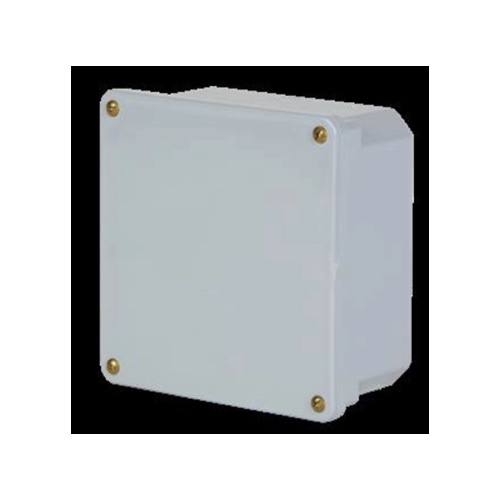Stahlin PVC Enclosures

Stahlin PVC electrical enclosures are known for their stylish design and functionality. These enclosures have smooth, rounded edges with almost no protrusions, making them safe to handle and easy to install. They feature sturdy, integral mounting flanges and are suitable for both indoor and outdoor use. Stahlin PVC enclosures are designed to be used in both industrial and commercial environments while offering robust protection of sensitive electrical equipment.
The enclosures are created to suit different internal arrangements. This includes instrumentation enclosures that can be tailored to accommodate all manner of components. Stahlin constructs its non-metallic enclosures out of corrosion-resistant, weatherproof PVC. This is a big plus if you plan to use one in exterior applications, regardless of the weather or climate.
FAQs
How does Stahlin's line of non metallic electrical and instrumentation enclosures protect their own enclosure components from damage while still balancing appealing aesthetics?
Stahlin's line of non-metallic electrical and instrumentation enclosures protect their components from damage with durable, corrosion-resistant materials and effective sealing systems, while balancing appealing aesthetics through rounded edges, minimal protrusions or exposed pocket areas for assembly.
Non-Metallic Enclosure Types
Characteristics of non-metallic enclosures:
NEMA 4x rating for outdoor use providing chemical resistance and protection from dust, debris, water and rain.
High insulation value, which provides insulation from cold and hot temperatures, but does not dissipate heat from inside the enclosure.
Non-conductive, meaning components cannot be grounded to the enclosure, but it still provides the same security and tamper resistance levels as metallic enclosures when properly locked.
Types of non-metallic enclosures:
Fiberglass
A thermoset polyester material reinforced with glass fibers. It is the most widely used non-metallic material in the industry. It has high impact strength and rigidity (dimensional stability), a superior working temperature range (-31˚F to 300˚F), excellent electrical properties, moisture and chemical resistance, as well as being cost effective.
Polycarbonate
High-performance thermoplastic resin processed by injection molding or sheet extrusion. It has superior impact resistance, good rigidity (dimensional stability), an extended temperature range (-31˚F to 180˚F), excellent electrical properties, fire retention, UV stability and corrosion resistance in some acidic surroundings. It is not suitable for environments with strong alkalis and organic solvents.
ABS or ABS blends
Acrylonitrile Butadiene Styrene is a common thermoplastic polymer processed by injection molding. It has high impact resistance, but less impact resistance in cold weather compared to polycarbonate, excellent electrical properties, superior chemical and moisture resistance, but a narrower temperature range than fiberglass (-40˚F to 248˚F).
Polyester
High-performance unfilled thermal plastic processed by injection molding. It has high impact resistance, but less impact resistance in cold weather than polycarbonate, excellent electrical properties, superior chemical and moisture resistance, but a narrower temperature range than fiberglass (-40˚F to 248˚F).

